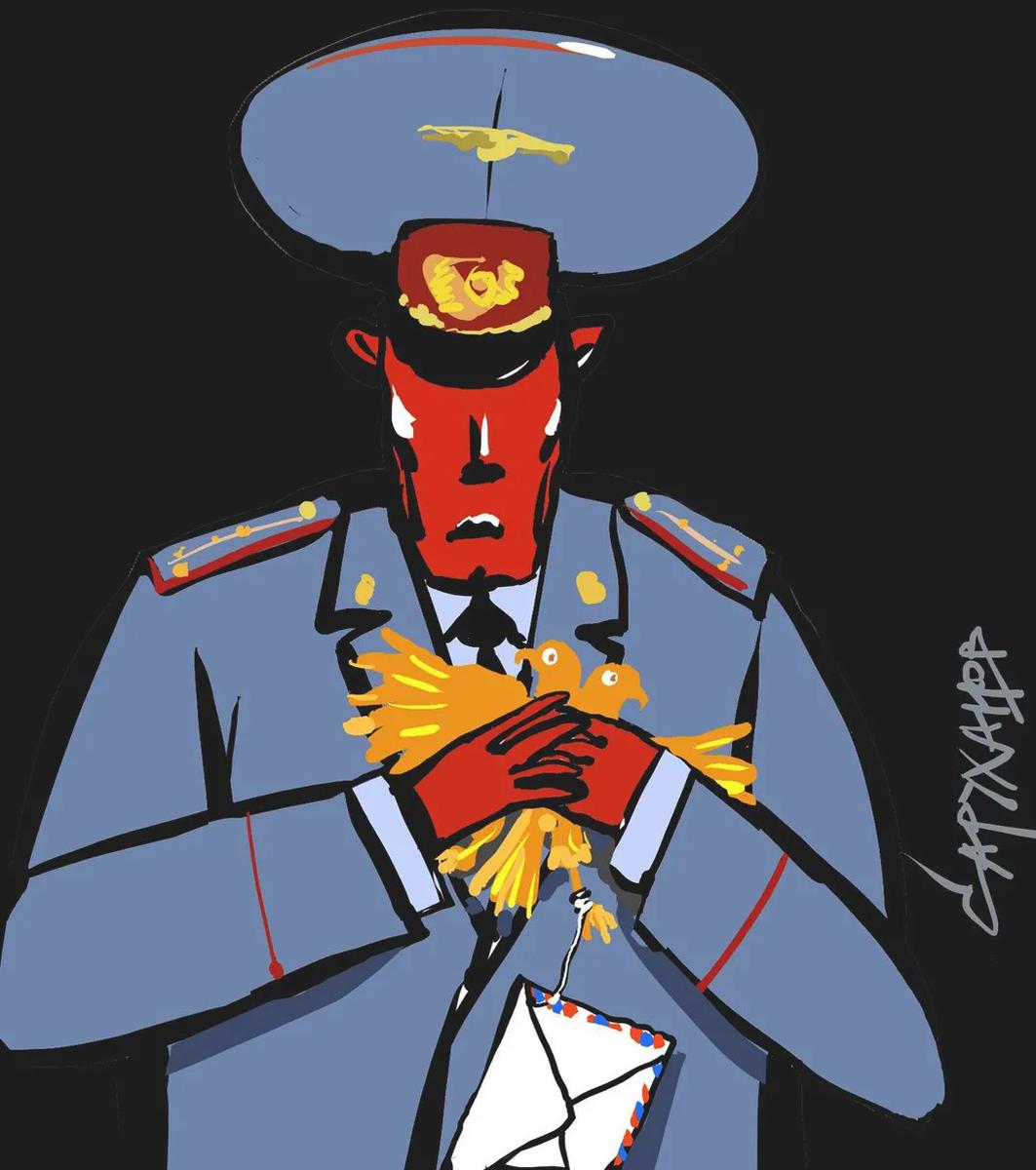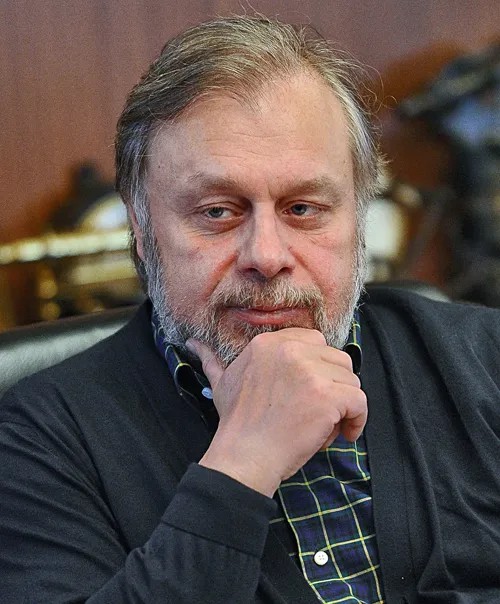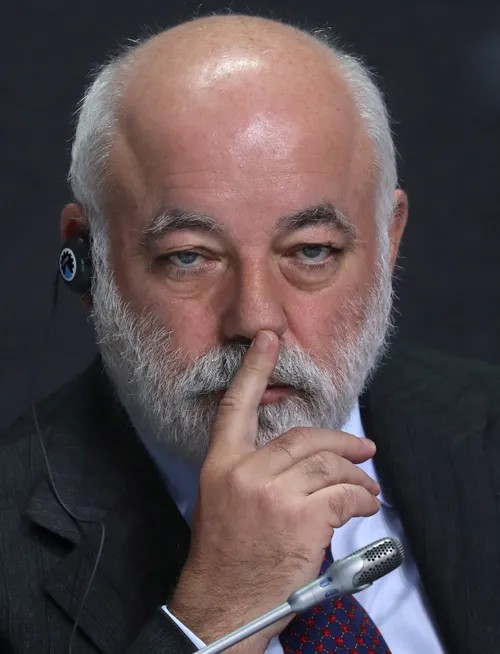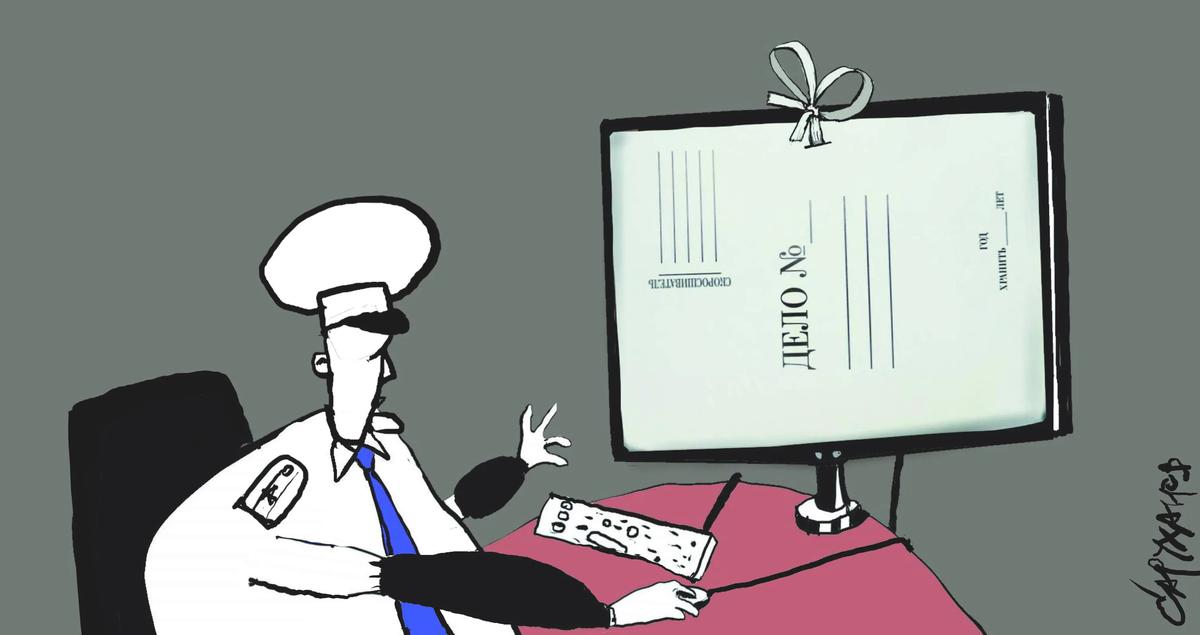
Russian money in Western jurisdictions is becoming а kind of a «toxic» asset. This phenomenon has a political nature and a wide range of consequences. In particular, for the litigations involving Russian citizens who chose to resolve their commercial disputes in London or New York, rather than in Moscow or Tyumen. Russia is now perceived as a source of threat. The less clemency one should expect to get for certain «legal customs», for example for instigating criminal proceedings, as an instrument in commercial dispute. Much less — for attempts to use cross-border authority of law-enforcement bodies for the benefit of one of the sides.

That’s why it seems to me, that the litigation between the former Russian senator Leonid Lebedev and his ex business partners Victor Vekselberg and Leonard Blavatnik will soon become one of the most scandalous «Russian» cases. My prediction is based not on the sonority of the names and the value in dispute ($2 billion), but on the fact the New York Court shall be provided with the documents demonstrating how Russian policemen, following the instructions of the American lawyers, demand from their counterparts in Cyprus and Ireland to provide comprehensive information about the activity of local companies. It will be a fine occasion to talk beyond reasonable doubt about corruption in Russia and the attempts to export it to Europe and the USA.
Sources of Information
«A knock» in Telegram.
— Are you Irek Murtazin?
— Yes.
— Could you confirm that?
— Call me, we’ll talk… — I offered to talk via voice communication.
My nameless source kept asking questions.
— Are you the «Novaya Gazeta» reporter, an author of the article «Double it to Dublin»?
I had no time to reply when a new message arrived:
— That might be of interest to you.
Several files were attached to the message. It appeared to be correspondence between lawyers form Russia and US discussing (in English) «Request for judicial assistance», sent to the Ministry of Justice of Ireland by a police captain from Tver Nikita Matveev, as well as other materials from the criminal cases initiated in Tver and Yaroslavl. Judging by the dates and content, both the request and materials, came to attention of the lawyers long before my article had been published.

While working on the article, I had a meeting with Leonid Lebedev among others. He refused from commenting on the preparation for New York litigation (Andrei Shtorh, spokesman for «Renova» and press-secretary for Vekselberg and Blavatnik also refused to provide any comment). Instead, Lebedev answered the questions about the past. Among other things, about the criminal case of weapons smuggling from Ukraine to belligerent Yugoslavia, where Lebedev found himself a defendant 15 years ago. One of Ukrainian «Lords of War», prior to engaging in delivery of deadly supplies, worked in the company, where the ex-senator owned a minor stake.

In early 2004, the Court of Turin drew the line under the trial concluding that Leonid Lebedev wasn’t involved in arms smuggling. But some years before that, when the negotiations about the sale of a share in TNK to BP were underway, it was the status of the suspect in the criminal case that prevented Lebedev from being legalized as a shareholder in the Russian oil company. At the time, a request of Vekselberg and Blavatnik to stay in a shadow in order not to frustrate the deal with the British seemed quite proper to Lebedev, as before they had always complied with their financial obligations toward Lebedev being an «informal shareholder».
These obligations accrued in 1997, when the auction for the sale of 40% of TNK shares was held. Lebedev lost, but became a partner of Vekselberg and Blavatnik, and contributed several tens of millions of dollars to the «common pool», as well as his own TNK stock (1,8%) and the stock in the main TNK producing asset — «Nizhnevartovskneftegaz» (10,5%). However, de jure he got nothing in exchange.
In 2001, the partners gathered in New-York and agreed that Lebedev had the right not only for 15% share in TNK, but for the same share in all income from the oil business. And for a long period Lebedev received the agreed money – both the dividends and the share from the sale of TNK to the British. The payments were made through the Irish company Coral Petroleum Limited, to which the companies controlled by Vekselberg and Blavatnik transferred the notes for $600 mln. within three years.
But after TNK-ВР was sold to Rosneft, for a year Lebedev tried to get the payment of two billion dollars — 15% of the sum his partners received from the deal with Rosneft. But in vain. He had to refer to the court. As the negotiations on distribution of the shares of profit from the activities or TNK sale took place in the USA a complaint was filed in a New York court.
«Drop the claim or all will go wrong»
Now it does not look an accidental coincidence that soon after the complaint was filed in the New York court Lebedev started having problems in Russia. The problems become so serious that in May of 2015 he had to resign from senatorship. And on September 7, he became investigated on the criminal ground.
Back in March of this year, in the article “New York echo on Volga” I told a story on how the police authorities managed to create an international criminal case on the ground of a corny dispute about who didn’t pay whom for gas. Notably, in February 25, 2013, SU UMVD [Investigation Department of the Regional Office of the Ministry of Internal Affairs of Russia] for Tver region initiated a criminal case against the management of the company ОАО Tver Communal Systems (TCS) and ОАО Territorial Generating Company №2 (TGC-2).
The plot of the criminal case runs that ТCS made an agreement with Gazprom Mezhregiongaz Tver for gas supply and didn’t pay for that. The investigators failed to notice the fact that the final consumers’ debt to the company exceeded the company’s debt to the supplier. Three months later after the proceedings in New York started, on May 16, 2014, a new criminal case was initiated in Russia — this time it was against the management of the companies TGC-2 and ТCS.
In May-October of 2015, an ex-top manager of TGC-2, who came to work in one of the companies controlled by Vekselberg, met with Andrey Korolev being the chairman of the board of directors of TGC-2. There were two meetings in Moscow and one meeting in Brussels. As Korolev said “the negotiator” insistently advised to persuade Lededev to drop the New York case. Otherwise “it will be bad”.
— That’s what he said, if the claim in New York isn’t withdrawn by the end of the year both Lebedev and I will go to prison – Andrey Korolev told me back in the beginning of the year.
Поддержите
нашу работу!
Нажимая кнопку «Стать соучастником»,
я принимаю условия и подтверждаю свое гражданство РФ
Если у вас есть вопросы, пишите [email protected] или звоните:
+7 (929) 612-03-68
Lebedev didn’t drop the claim. And «the negotiator» didn’t cheat. A few days passed and the status of Korolev in the “debt” criminal case changed from “a witness” to the “suspected”.
However, it’s clear the focus of the investigation was not Korolev, much less the managers of a lower level, but Leonid Lebedev himself. As the inquiry progressed, tens of managers of the entity were questioned. And all of them were asked if Lebedev took part in the management of the company, if he gave any instructions. But all the questioned ones answered Lebedev “didn’t take part”, “didn’t give” any instructions.
As a result, they succeeded to fix Lebedev as a suspect only on the ground of the claim of an off-shore company Lonicera Participation Corp, which had 0,0045% shares of TGC-2 (possibly it’s also a coincidence, but Lonicera Participation Corp turned out to be closely connected with Renova Group controlled by Victor Vekselberg). It took the head of the Investigation Department of the Regional Office of the Ministry of Internal Affairs of Russia in Tverskaya region lieutenant colonel Aleksey Pushkarev less than a day to check up the arguments of the Cyprus company and to issue a 23-page order to initiate a criminal case where Lebedev was given as a suspect.
According to a theory given in the order signed by Pushkarev in 2013, TGC-2 made a few agreements with off-shore companies and provided big advance payments under them. But the agreements were not performed and money didn’t come back to TGC-2. But the preliminary check-up wasn’t made, and Pushkarev ignored the fact that Lebedev’s 43% shares of TGK-2 had been transferred into trust management in 2008 and ex-senator didn’t take part in the operating management of the company. Pushkarev also did not pay attention to the fact that the money came back to TGK-2 and even with some profit, so there was no financial damage for the company.
Days of Ireland in Tver
I will tell you nothing about that criminal case because its circumstances seem not to bother even the investigators who are in charge. Tver policemen have different aims. Notably, captain Nikita Matveev, the senior special investigation officer of the investigation department on organized crime activity of Bureau of the Ministry of Internal Affairs of Russia for the Tver region, sent a request on judicial assistance to Ireland.
As an experienced officer, Captain Matveyev could not help but imagine how much work his Irish colleagues would have to do in order to collect hundreds of pages of documents on the financial and economic activities of companies registered in Ireland, on banks and depositories in which their accounts were opened, on information about individuals, who were managing the accounts. Mr. Matveyev actually asked the Irish colleagues to conduct interrogations, searches and seizures.
The document also presents a long list of questions to ask the people who are the subject of the captain’s interest.
For example, here is one of the questions from the dozens of similar ones:
"Who was(were) / is(are) the shareholder(s) / member(s), controlling person(s), principal(s), beneficial owner(s), full beneficiary(ies), real beneficiary (ies) of Agragorn Holdings Limited, Coral Petroleum Limited starting from the date of incorporation till now? Who has initiated the foundation of Agragorn Holdings Limited, Coral Petroleum Limited? What documents have been filed for these purposes? What projects Agragorn Holdings Limited, Coral Petroleum Limited carried out in the context of their financial and economic activities? Please, identify the main counterparties? What are the relations between Coral Petroleum Limited and Agargorn Holdings Limited? Have Corral Petroleum Limited been controlling the activities of Agragorn Holdings Limited? If yes, in what manner?”
All this is quite indirect to the plot of the criminal case, and I would have never been able to understand the reason of Captain Matveyev's interest to such details if I had not learned that one of the key issues in the New York proceeding is: whether the Irish company Coral Petroleum Limited received promissory notes as a distribution of Lebedev's share of income from the sale of the half of TNK shares to British Petroleum, as well as the dividends from TNK-BP activities for three years’ period after.
Frankly speaking the connection of Coral Petroleum Limited to the criminal case brought up in the city of Tver is vague. One of the managers, who is a witness but not a suspect, used to work for Agragorn Holdings Limited – the parent company to which was Coral Petroleum Limited. And this "catch", according to Captain Matveyev, is enough to put the Irish police upside down. Even less can be said about the way the criminal case is investigated in Russia. Nobody seems to remember gas debts.
For example, one of the witnesses told “Novaya Gazeta” that during the interrogation, he was asked 29 questions related to Agragorn Holdings Limited and Coral Petroleum Limited. At the same time, the first question was: "Do you know the company Agragorn Holdings Limited?" But despite the negative answer, the next questions were: with whom of the representatives of the mentioned company you have met, who has initiated the meetings, how have you contacted with them, at what address is the office of the company situated at, who has hired you to work for Agragorn Holdings Limited, who has managed the company, how many people worked in the company, what is the structure of the company, in which banks the accounts were opened, could Leonid Lebedev manage the company's accounts, if you have retained the correspondence with Agragorn Holdings Limited employees? ..
Question: what if the investigation succeeded in interrogating a witness who had anything to do with the activities of the Irish firm, how it would use this information which, in my opinion, is not able to have an impact on the progress of the investigation in the criminal case?
In the request sent to Dublin, the captain Matveev emphasized: "SU of UMVD [Investigation Department of Regional Office of the Ministry of Internal Affairs] of Russia for the Tver region guarantees that any information and documents received as a result of the execution of the request will be used only for the purposes of the criminal case for collecting of evidences on criminal case during its consideration in court and will not be used for any other purposes …"
If one compare this statement with correspondence of the American lawyers, which the anonymous source shared with me, then I have to acknowledge that someone of those two is lying: either the anonymous author, or captain Matveev.
After all, in their correspondence the lawyers from the USA and Russia apparently realizing juridical faulty of receiving materials from the criminal cases brought in Russia, are discussing the ways "to legalize" these materials in the New York proceedings.
There is a reference, inter alia, to the "Request for judicial assistance" of the captain Matveev.
For example, on March 30, 2017, at 22:03, three months prior to date of my publication, a letter was sent from the USA to Russia, the author of it specifies that out of the received by him before "certified translations" there were three documents that attracted a special attention:
"First, it is the request for juridical assistance submitted by the Russian investigators to the Irish authorities. As other requests for providing judicial assistance on collecting evidence, it contains a useful summary <…>.
<em>Similarly, the second document is the request for rendering the judicial assistance</em> <em>submitted to the authorities of Cyprus <…>.</em>
<em>The third document, which is interesting to me, is the translation of the hand-written questionnaire (allegedly the author is L.L. Lebedev) filled in for obtaining of the English visa <…>.</em>
<em>I am sure that there is a lot of interesting stuff in documents (including testimonies of witnesses), but I’d like to receive this interesting information as soon as possible …"</em>
The same day, on March 30, but in the morning, at 11:46, a letter goes from Russia to the USA, in which the author states doubts whether "we can file these documents to the court".
And here is the answer of the addressee of this letter: "We are still working to determine, whether we can use these documents in New York, but we have no clarity on this matter".
This correspondence looks as if materials from criminal cases in Russia get so called “first-hand” to the lawyers involved in the proceedings in New York. According to Article 310 of the Russian Criminal Code, disclosure of information of preliminary investigation data bears responsibility. But if one assumes that police officers in Tver receive direct instructions from the USA as to which questions witnesses should be asked and what documents and data it is necessary to request in foreign jurisdictions, then another qualification of their actions is possible.
"Leak" and USB
Of course, I am not ready to trust completely the information of an anonymous source, but, first, the materials I received from it, are perfectly coherent with other facts of the case. And, secondly, my sources already cause serious interest not only in the readers.
The point is the following.
The investigation called "Double it to Dublin" was published in "Novaya [Gazeta]" on June 26, 2017. And in the first days of July I received a call from the Ministry of Internal Affairs. The police officer who introduced himself, told his name, surname, his position and rank, reported that he needed to interrogate me concerning the publication about the request of captain Matveev.
My interlocutor wondered how I got the copy of this document.
— Send an official subpoena, I will help with what I can. I can, for example, copy this request for you also. But I want to warn that we never name sources of obtaining documents and information.
A subpoena has never come to me. But after a chat in the Telegram I managed to find out that the Irish request became a keen interest for the Internal Investigation Division of the Ministry of Internal Affairs of Russia. According to our source in the Ministry of Internal Affairs, the materials collected by officers of the Internal Investigation Division including data on "the channel of supply" for private American lawyers with the documents from the criminal cases brought in Tver, are transferred to the investigative body and the Prosecutor General's Office of Russia for taking a procedural decision. These materials contain also an official report of operation and search activity (OSA) with the attached screenshots of the American and Russian lawyers’ correspondence that I mentioned.
Поддержите
нашу работу!
Нажимая кнопку «Стать соучастником»,
я принимаю условия и подтверждаю свое гражданство РФ
Если у вас есть вопросы, пишите [email protected] или звоните:
+7 (929) 612-03-68
